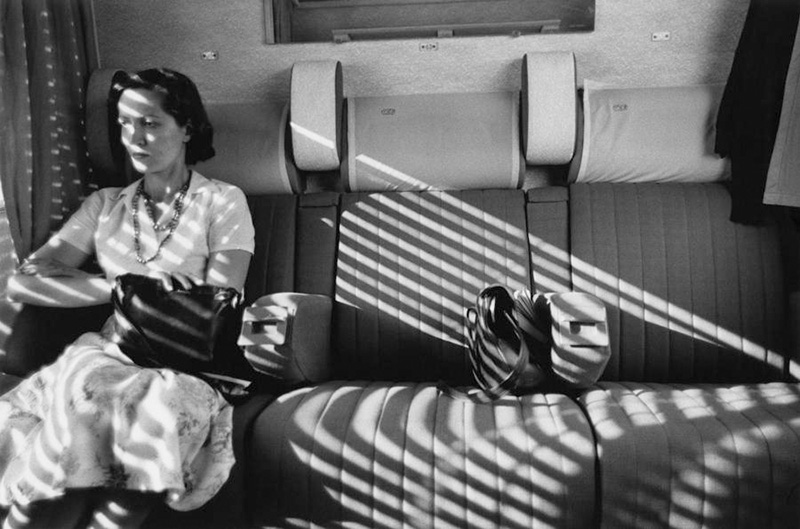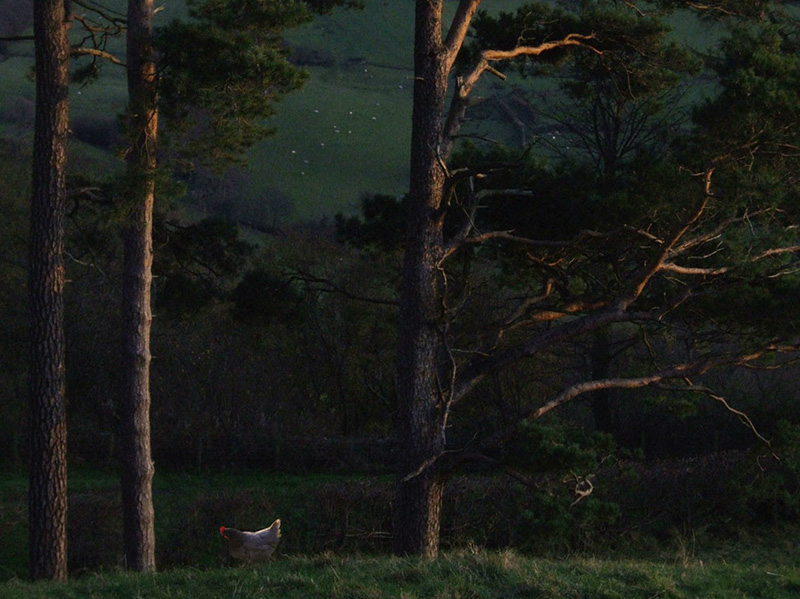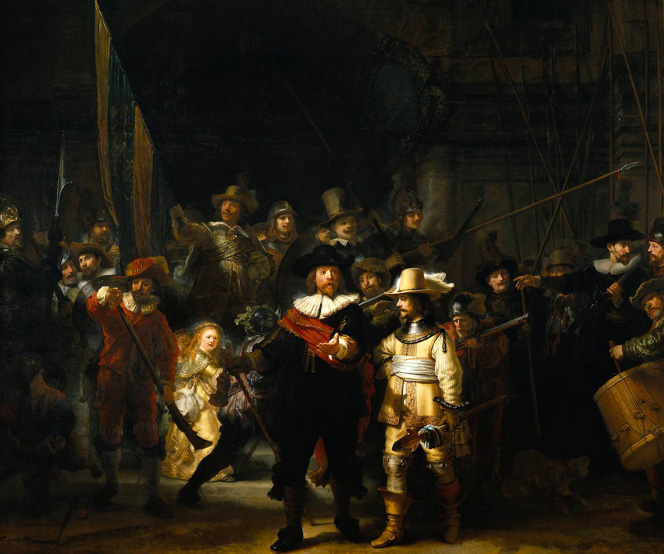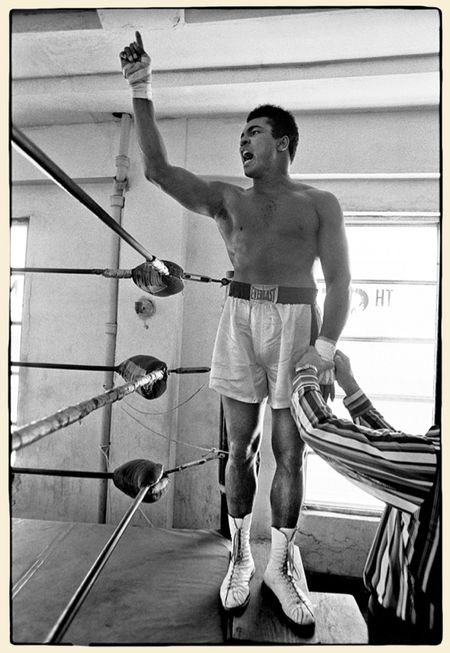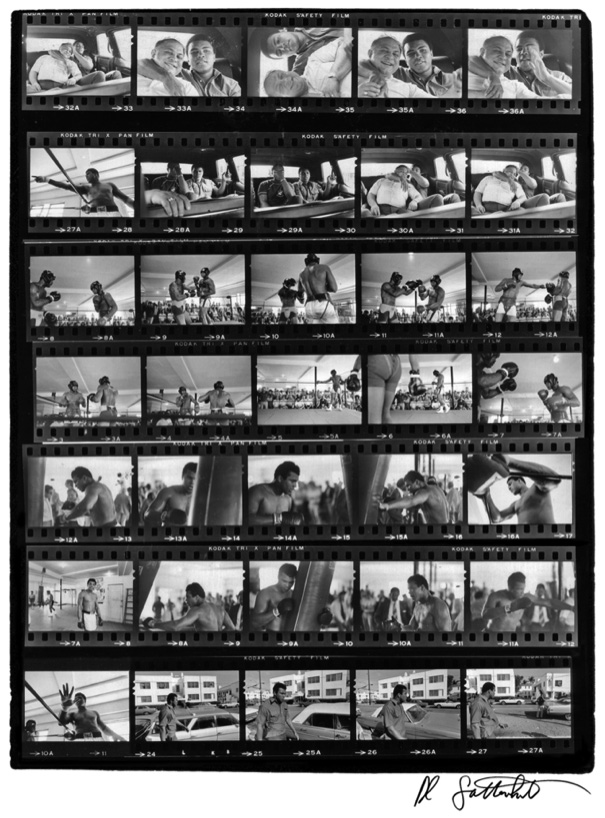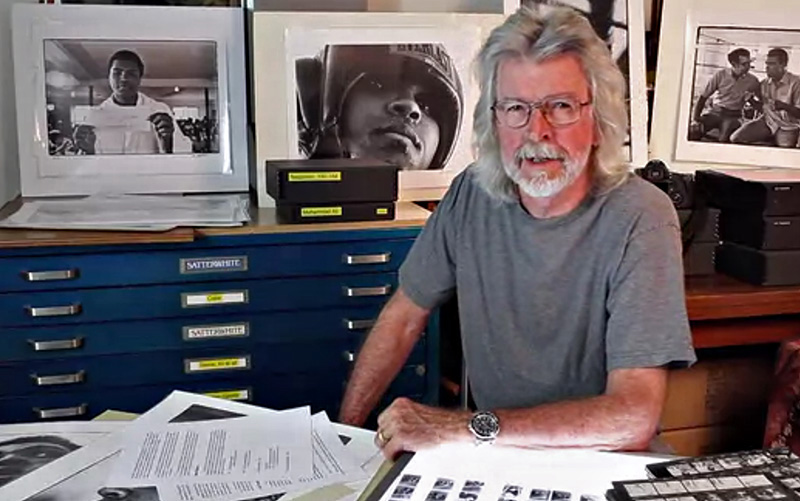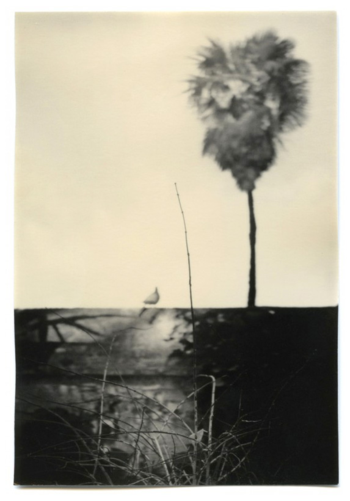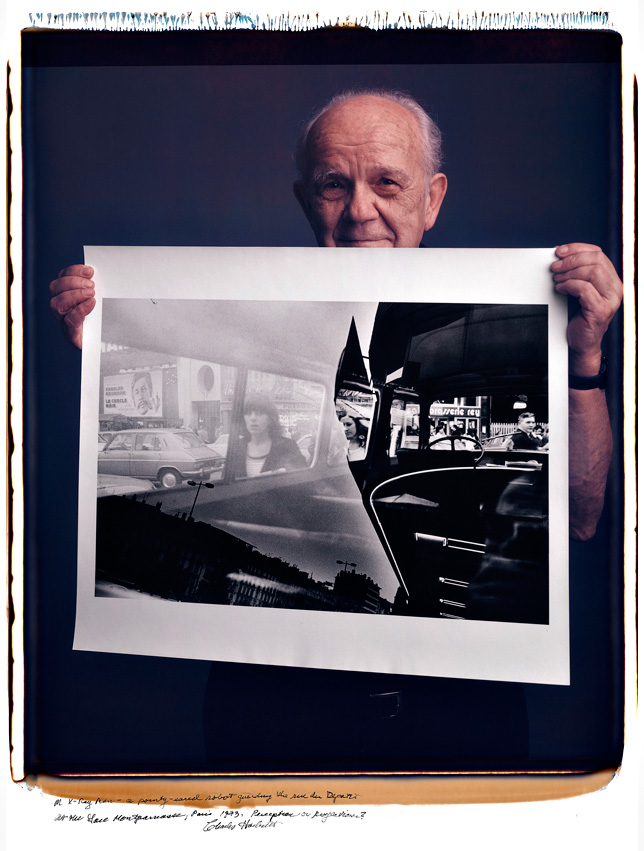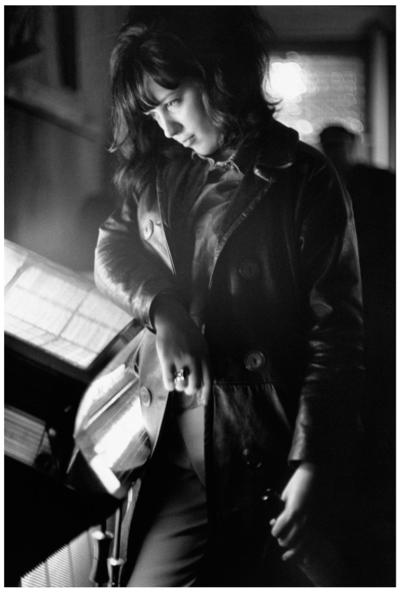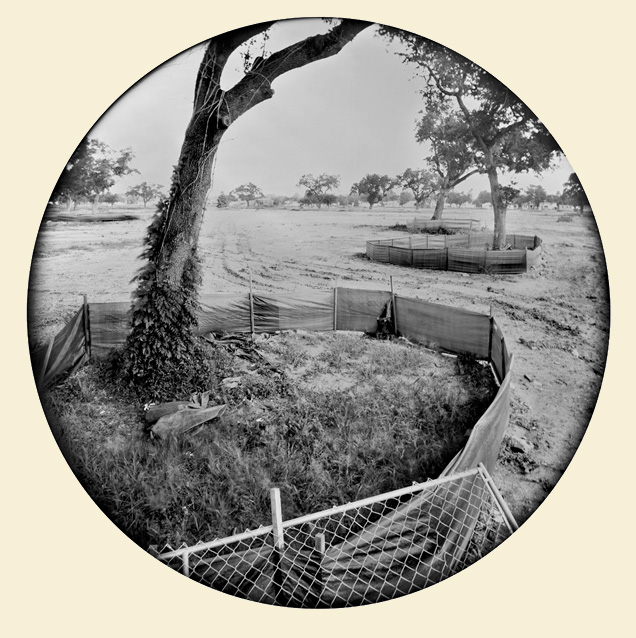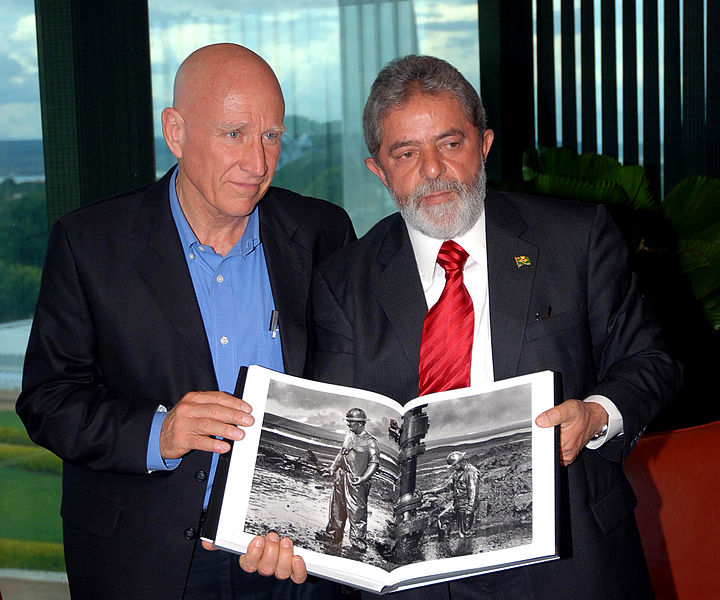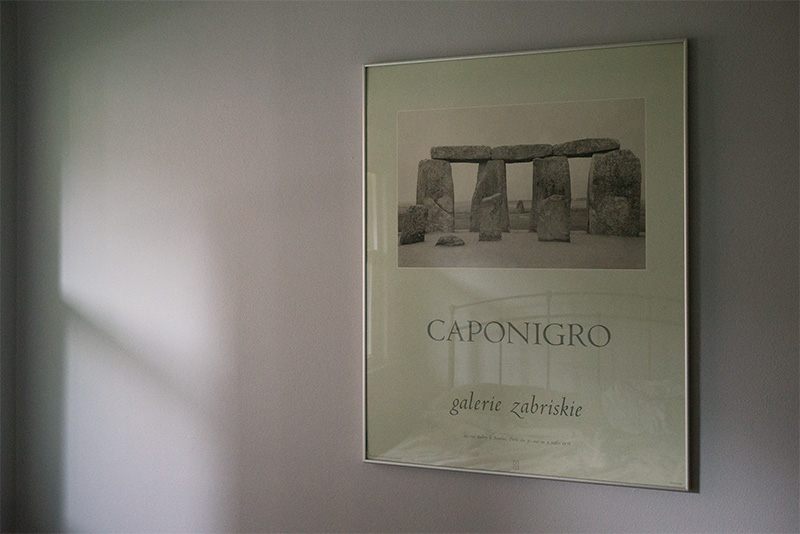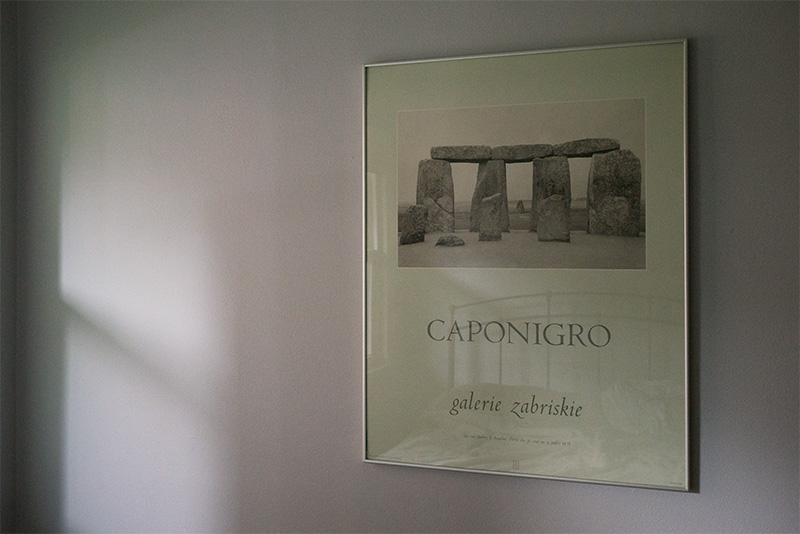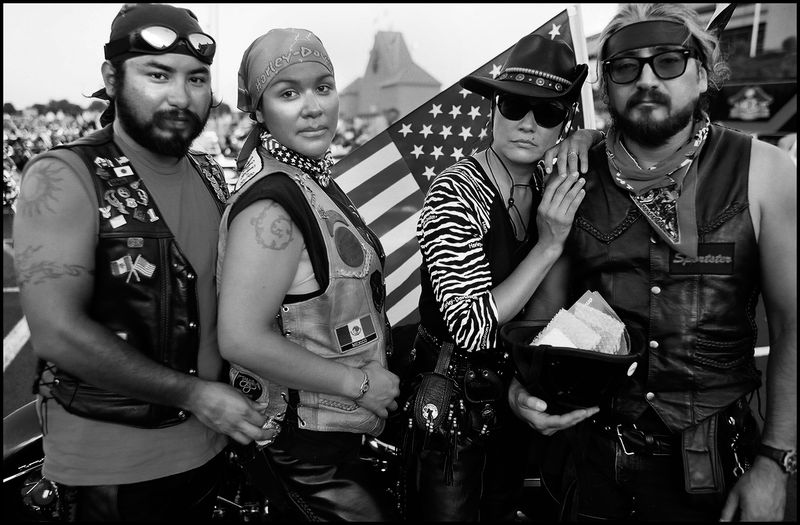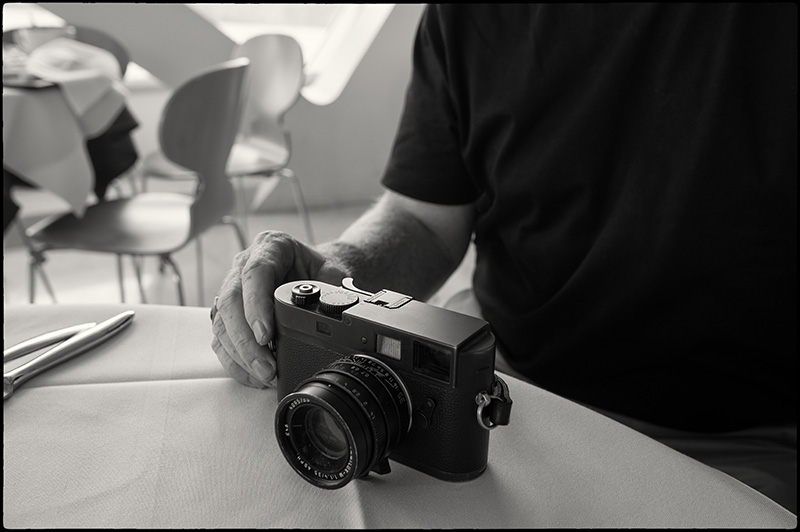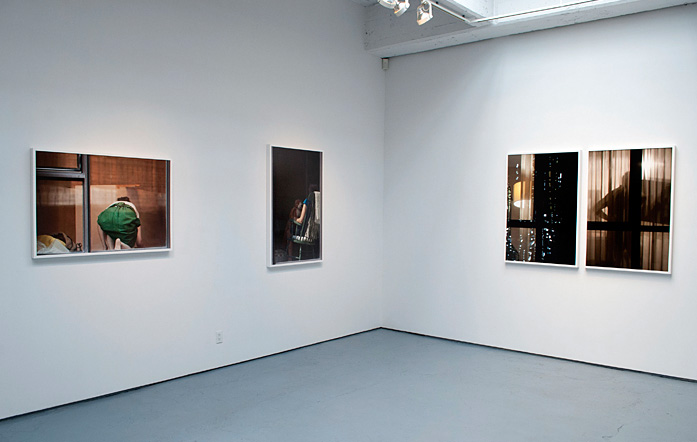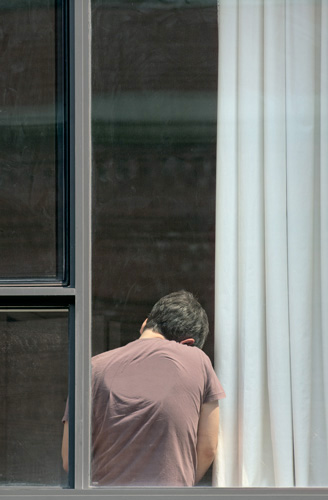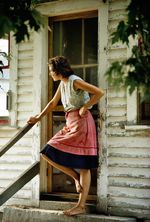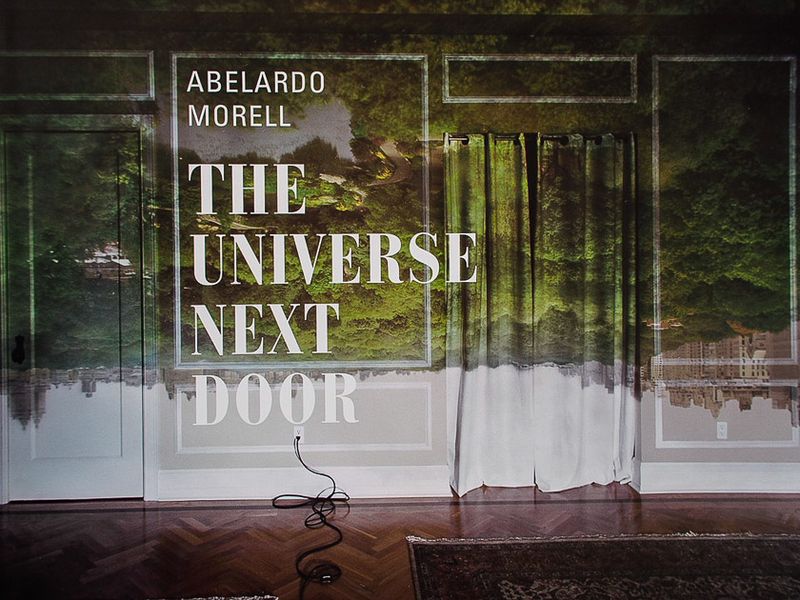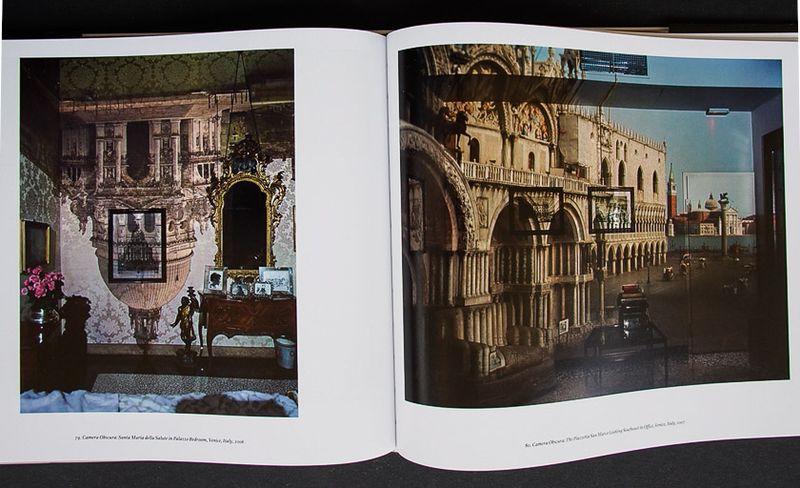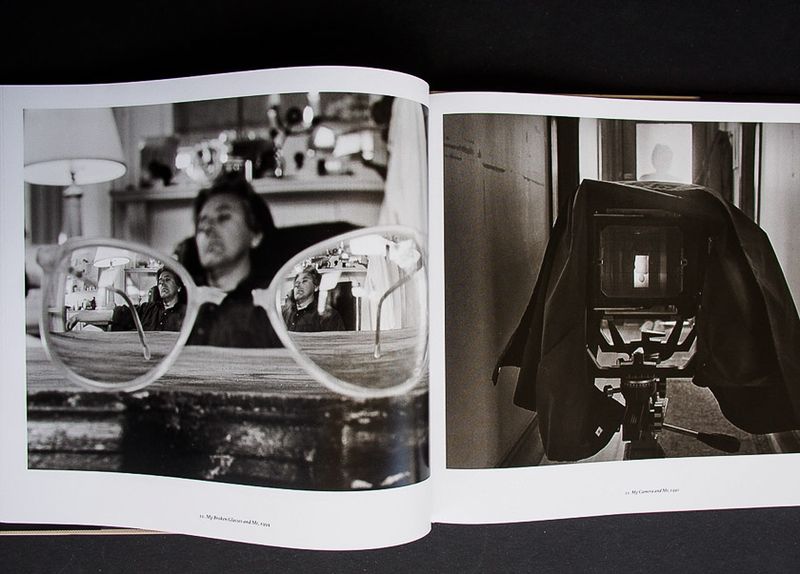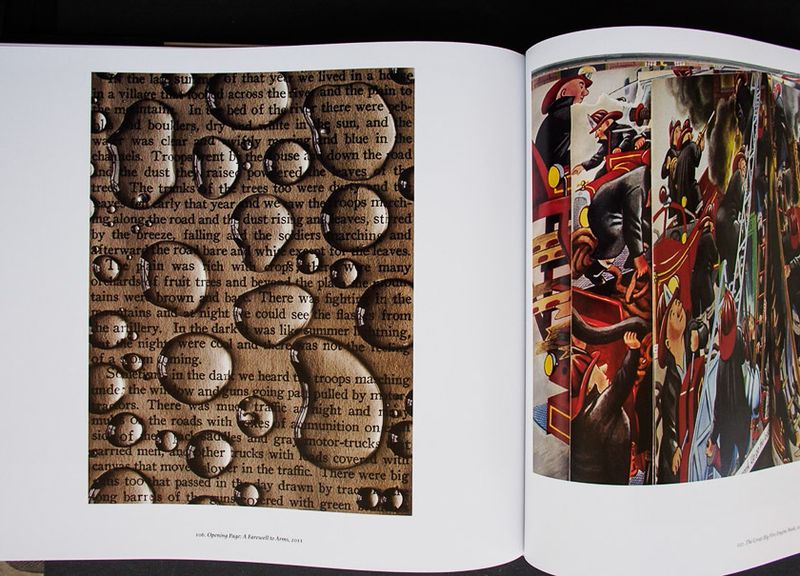Apropos our discussions last week, a quick pulse-check. This doesn't even rise to the level of a survey, and that's okay. I'm just interested in hearing from some actual people.
If you work in photography, how's it going?
How are things for you? How's the market, how's work, how's income, how's the job, how's job satisfaction? No need to be literal, just peg it to how you feel overall. Don't speak for others or analyze the Universe, just speak for yourself.
Let's define "work as a photographer" as 1. Employed full-time in any photo-related field or earn your entire living in any photo-related field, or 2. Make at least 2/3rds of your present income taking pictures and selling them (in whatever way).
Let's rate on a 10 scale from –5 to +5, where 0 (zero) is "same as it ever was," "just cruising along," "same old same old"; the positive numbers are various shades of "things are good and/or getting better," and negative numbers are degrees of "things are bad and/or getting worse."
You can just give a number if you want. Adding how you work in photography might be helpful. You don't need to comment further unless you want to. (If you want to, be aware than the longer the comment, the less likely it is to be read.)
I'll start. I'm +3 or +4.
So how you doin'?
Mike
P.S. And just this time, no meta-comments or non-responsive comments, please. I might hold those back until later. Although I'll post them eventually.
Original contents copyright 2014 by Michael C. Johnston and/or the bylined author. All Rights Reserved. Links in this post may be to our affiliates; sales through affiliate links may benefit this site.
TOP's links!
(To see all the comments, click on the "Comments" link below.)
Featured Comments from:
Bahi: "I'm a 0 financially but at least a +3 for job satisfaction. I work with some very interesting photographers on workflow, post-processing, print-making, colour management and other technical things. Some people say that teaching is a good way of learning your subject and that's true but looking constantly at other people's work has meant learning about photography in general and not just about the technical stuff. In particular, I get to see what distinguishes one photographer's outlook from another's and how true it is that belief in yourself and your work is everything. Teaching people the tools to quickly organise and edit their work means you get to see what photographers consider to be their hits and misses—definitely one of the highlights of the job and still, after a good few years at this, a great way to learn.
"I also get to meet some lovely people. Most photographers I work with see the world as their raw material and are interesting and insightful—they tend to be optimistic and successful (I guess they'd have to be otherwise they wouldn't be paying someone to help with this stuff).
"Plus, I get to file all the time I spend here at TOP under 'Professional Development'!"
Mike replies: Splendid.
Jim Hughes: "Sam Kirkland, a former employee of the Chicago Sun-Times, has done an interesting story for the Poynter Institute on what's become of the photojournalists the newspaper fired en masse last year.
"'One year ago today,' he writes, 'the Chicago Sun-Times eliminated its photo staff, laying off 28 full-time employees. Most of them have landed on their feet, according to email and phone interviews with many of the photographers. While they were sometimes hesitant to dwell on the layoffs, the former Sun-Times staffers filled me in on how their lives—and those of the photographers I couldn't reach—have changed since May 30, 2013....'
"Here's the full story. And be sure to read the comments that follow the article itself."
aaronL: "–2. Twenty years running a once busy portrait studio. Hanging on by a thread...."
Fiddlergene: "+5."
Tim: "–4. Left the industry almost completely after five years being fully self employed. Still shoot the occasional job for old clients but now mostly just shoot my kids and cats."
Bryan Geyer: "I'm retired (since 2002) from the photography trade now, and I can't speak specifically about 'work as a photographer,' but I can tell you this: The photography equipment business is in a tailspin. This past year has been a major disappointment for virtually every equipment manufacturer, large and small, with progressively shrinking sales and scant evidence of improvement. I can't recall any period of such severe and widespread recession since the very early 1970s. The entire trade is in a funk."
[Bryan is the retired founder of Really Right Stuff, the tripod accessories company. —Ed.]
Mike Plews: "In September I'll hit 40 years in the TV news business as a photographer. For me at least things feel like either a +1 or a +2. My business has seen a lot of change in the last five years. I see that as an opportunity to recharge my creative batteries. The changes in technology have occasionally left me breathless, and I mean that in a good way.
"Photography in all its forms has always been a tough racket. You have to be agile to make a living. I do notice that in the last few years personal work, which is all still photography, has been occupying a larger part of my 'thinking for pleasure' time."
Rob: "I think I'm at +4. I'm early in my career, and about to (hopefully) expand my business with the addition of a full-time studio space, dedicated to shooting and editing, in Lebanon, New Hampshire. I can see why newspaper and magazine journalists are worried, and to the extent that I aspire to editorial portraiture, I know I probably should be worried as well, but my tiny business is growing, and I'm excited. Hopefully I can continue the expansion without dominating the twittersphere or embracing crossover video mumbo jumbo."
Jay Pastelak: "In my personal work, probably 0 to +1. In my professional life as a professor in a private for-profit school that once had a vibrant photo program but is now struggling to attract students, it's a –4. Summer schedules came out last Friday afternoon. I'm OK but some of my full-time colleagues have found themselves reduced to one class (five is normal). Adjuncts are non-existent. Things were exceptionally grim in faculty offices yesterday."
Steve Wilkie: "I work in the film industry in Toronto as a set/gallery photographer. I'd give it a +1 currently."
Robert Harshman: "Last year and this year, on your scale, I'm at a +10 off the chart. Commercial work. In the last six weeks I've made what would have been a very good two years' income five years ago. Keeping my fingers crossed it will last 2–3 more."
Pete: "I shot stock for a big agency for 15 years, originally sailing around the Pacific on a yacht, then living in Australia. Income peaked 10 years ago and has declined ever since.
"I married a Thai photographer and moved to Thailand to reduce costs. So I'm about –3. My wife's wedding photography has taken off here and she is about +4. But she's a good photographer!"
pierre: "Full-time freelance since 1981. Income exclusively from shooting. Constant decrease in business since 2004, but 2012 has been excellent while 2013 has been the worst in twenty years. So far 2014 is even slower.
"I like to believe I have never been a better photographer as of now. The clients comment positively on my current assignments with more enthusiasm. And yet, they buy my services less and less. Go figure.
"Note: –3. Of course, I am worried."
Jack Foley: "I've been a staff photographer on daily newspapers for 35 years, and in my current job for the last 28 of them. I am a general assignment photographer, so my subjects are quite varied day to day. The way I approach the job of telling stories with a camera has not really changed that much. But, the tools and the business have changed greatly. For me, working in color came in the early '90s and digital took over in the early 2000s. Both were welcome improvements. The newspaper business, with print circulations in decline, has become as much a web presence as it is a print presence.
"For me, in its current state, more of my pictures are published, but I fear fewer people see them. Embarrassing as it is to reveal it, I haven't had a noticeable raise in pay in more than two decades. I still love the work though, and hope to last long enough to retire five to ten years from now. So, on the business end, the number would be –3, and the personal satisfaction number would be around 4. Short answer: Guess I'm doin' okay, Mike. Thanks for asking."
Ken Bennett: "+4. I'm the sole staff photographer at a University, where I've been working for 17+ years, after ten years as a freelance news photographer in another state. [Readers might remember that we published Ken's portrait of Maya Angelou a few days ago. —Ed.] I work with a terrific team of writers and designers who love my work, and I get great assignments.
"I had a major promotion last year, I'm doing the best work of my career, and my position provides excellent benefits and most of my gear. Although many people in higher education are facing cutbacks and layoffs, our office has been expanding over the last few years (because we really needed it.) Of course it's not all unicorns and rainbows, and there's a fair amount of the 'headshots and banquets' common to any staffer, but overall my personal situation is great. I feel for Kirk (in the Comments Section)—'To sum up: Sucky time to be an aging photographer with the inertia of old school practices sitting heavily on one's shoulders like a dead albatross'—and I see that among my freelance colleagues in this area. But you asked about our personal situations, so I thought you might want a positive outlook to provide some balance. :-) "
Agdemesaphoto: "I'm a 26 year old currently working as a fashion photographer's assistant here in the Philippines. It's creatively a +3 since I used to shoot documentary, journalism, and street for my own projects. It is a –4 financially. I worry about my day to day. I only get an allowance and food. I rarely have time to do my own shoots or find other sources of income. My equipment is not as fancy and my computer is an ailing five-year-old machine that is having a hard time editing files. I frankly don't know where I could get the capital to get better equipment. I may get connections and networks with my work but it's nothing if I don't have money for food. It's never about the money for me but I sure wish I don't need to worry about it."
kirk: "Mike, one more point. I think there is some aspect of context and relativity to peoples' perception of the market. If you ran a great business in the 1990s it was entirely possible to pull out $150,000 to $200,000 of profit in a good years. That's what many in the business saw as their target or benchmark. People who have entered the business after the 'digital revolution' may look at $60K to $80K in profit and think they are doing a dynamite business. I think a lot depends on when and how you entered the business. The understanding of success in the biz seems to be, to a big extent, relative to expectations."
Tom Hassler: "Financially, –2. Everything else, +5. I made a very nice living doing advertising and corporate photography from the late '70s until about 2008. As the economy tanked (and the photo biz turned into a low-paying, high-stress crap shoot) I re-focused my career entirely. It was a scrape for a while, but in hindsight, it was the best possible time for a major change. Now I teach and run workshops, and more importantly, I love my life in photography again."
Jore Puusa: "I'm a 62-year-old photojournalist from Finland. I've been in the industry from 1977. First 15 years I covered war and crisis for AP, UPI, DPA and AFP etc. Those years were good and photography was the very main point of my living. Good pictures paid good money and I felt I was a part of making the world better.
"Then at about 1985 things started to go worse. Several publishers gave small compact cameras to editors and the deadly trend has continued. Editors take now most of the pictures or amateurs deliver pics for free. We pros are set aside, I have been unemployed for three years now. I taught photojournalism three years—from 2008 till 2011—and during that time all my earlier clients chose an inexpensive young wannabe photog or free amateurs and now I'm finished and waiting for pension. The substance or visual quality means nothing and print looks terrible. Nobody cares because those who have a degree in economy are in charge in papers—not journalists any more. Circulations go down about 10% per year. The final death shakes are here and all will be finished maybe in 10 years from now. This is so sad and when print dies, fascism starts to raise its ugly head. Jore Puusa, teacher of photojournalism, Helsinki, Finland."
Kenneth Wajda: "+1. I'm a former staff photojournalist for a daily newspaper and now work as a freelance commercial photographer. I say +1, but I balance my shooting stills work with video production and editing. So, it's doing okay, but it's never easy. And there are still many people looking to get work for little or no pay. They'll say, 'unfortunately, we don't have a budget'—I just got that from a major Boulder magazine group. I said it's not like not having a budget is something that happened to you, that you're the victim of. You're the one who decided you could run a magazine while not bothering to budget anything for photography, because you don't respect photographers or think they should be paid for their work. I worry the younger generation won't appreciate or even recognize what good photography is."
Almostinfamous: "Overall –1. I do commercial and wedding photos in Hyderabad, India, and have been since 2009. It's a small market with not many agencies, and budgets have grown tighter and tighter the past few years due to political uncertainties. our state has recently split into two due to longstanding issues so if not for the clarity that brought, I'd be at –2 and looking anxiously to move to a bigger city."
Gordon Cahill: "+4 for me. I like technology so was early to go digital and early to reduce my printing. After 20+ years I'm still having a ball and making a good income. I've tried to keep my eye on what's going to happen rather than cling onto what I would like to happen, which has, so far, kept me out of trouble.
"My first 10 years was weddings. Then a few in commercial work. Then a break to go travel. Then another 10 in weddings and now back shooting mostly commercial although I will shoot 15 weddings and 25 portrait shoots this year as well. I've just invested in new cameras and I'm now looking at adding a drone to my kit. That alone might add another 500 per week. And I don't shoot video, just stills. Picked up another regular client this week. If this keeps up I might need to close the books. I do think there's been a real shift in the industry and I'm real glad I'm not a journalist in Australia. But with change come opportunities and I hope I grab a few of them on the way through. Bottom line is I only feel limited by how many hours there are in a day and how much energy I have to put into it."
